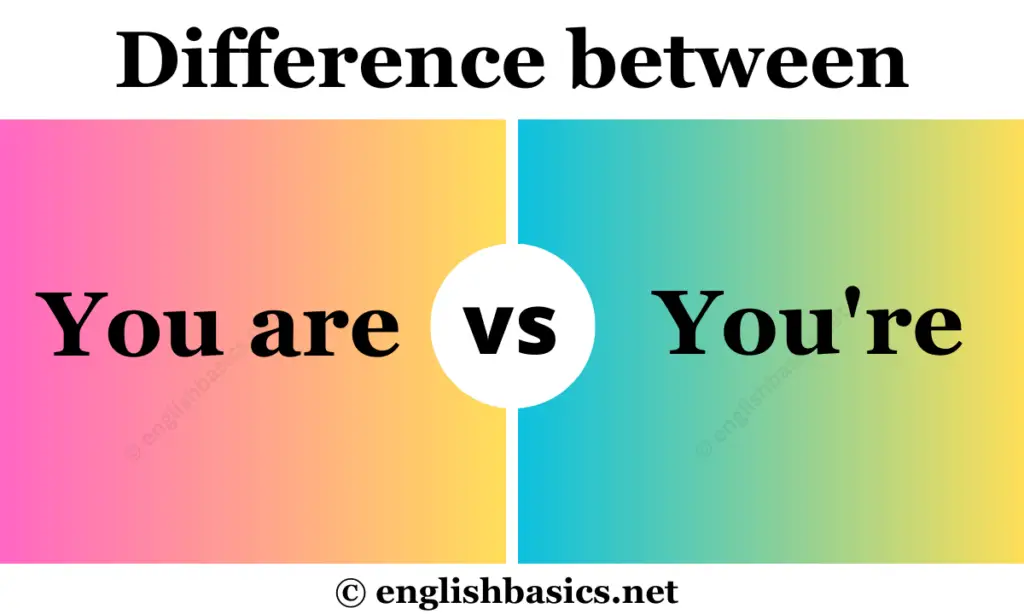The words “you are” and “you’re” are commonly confused by people. Although very simple and easy to understand, these can be complicated sometimes because of their meaning and usage.
“You are” and “you’re” mean the same thing. There is no difference in meaning whatsoever. But there is a difference that lies in their usage.
In most cases, they can be used interchangeably. While in some cases, one cannot replace the other. Let us discuss this in detail and understand them better.

You Are or You’re – Difference
You Are
“You are” is a two-word component that is used when we are indicating someone to be something in a present form. The verb “to be” means “to exist” or “to live”, and “are” is a form of the verb “to be.” When used with “you,” “you are” indicates to be straight to someone, usually forming present continuous tense.
“You” is a second-person singular pronoun, but when used as “you are,” it can be both singular and plural.
Let us understand it better with examples;
- You are still going to drive tomorrow.
- You are the one who needs to wash the dishes.
- You are busy writing homework.
We see, “you are” indicates to be directly to someone in the present form. It simply describes that something is happening in the present concerning “you”.
The common use of “you are” is when we revert a compliment or use it to answer a compliment. It can also be used to describe the current state or characteristic of “you”. It will be easier to understand with examples;
- No, you are the prettiest.
We see, “you are” is used to return a compliment.
- You are the best.
- You are very gorgeous.
It describes the current state or characteristic of “you.”
You’re
The word “you’re” is simply the contraction of “you” and “are.” It is a short form of “you are”, and it holds the same meaning.
“You’re” is used interchangeably with “you are” in many cases. It does not alter the meaning of the sentence in any way. For example;
- You’re busy with the television.
- You are busy with the television.
We see there is no change in meaning. In such cases, it is safe to use them interchangeably.
But “you’re” is a more informal word than “you are” and is used mostly in casual conversations. So it is necessary to understand the difference in contexts and situations. Herein lies the difference between the two.
However, sometimes, “you are” and “you’re” cannot be interchanged at all. In some sentences, “you’re” might not hold the correct usage, and it can make the sentence sound incomplete or inappropriate. For example;
- I am not going to drive, you are.
- I am not going to drive, you’re.
So, we see that “you are” seems to complete the sentence, but “you’re” seems more abrupt and incomplete. Basically, the word “you’re” is not suitable to be used as a standalone sentence. Or I cannot be used to end a sentence. Another example would be;
- You are, Ryan.
- You’re, Ryan.
So we learned that “you are” and “you’re” hold the same meaning. But “you’re” is a more informal term than “you are”. And in some contexts, the usage can differ.